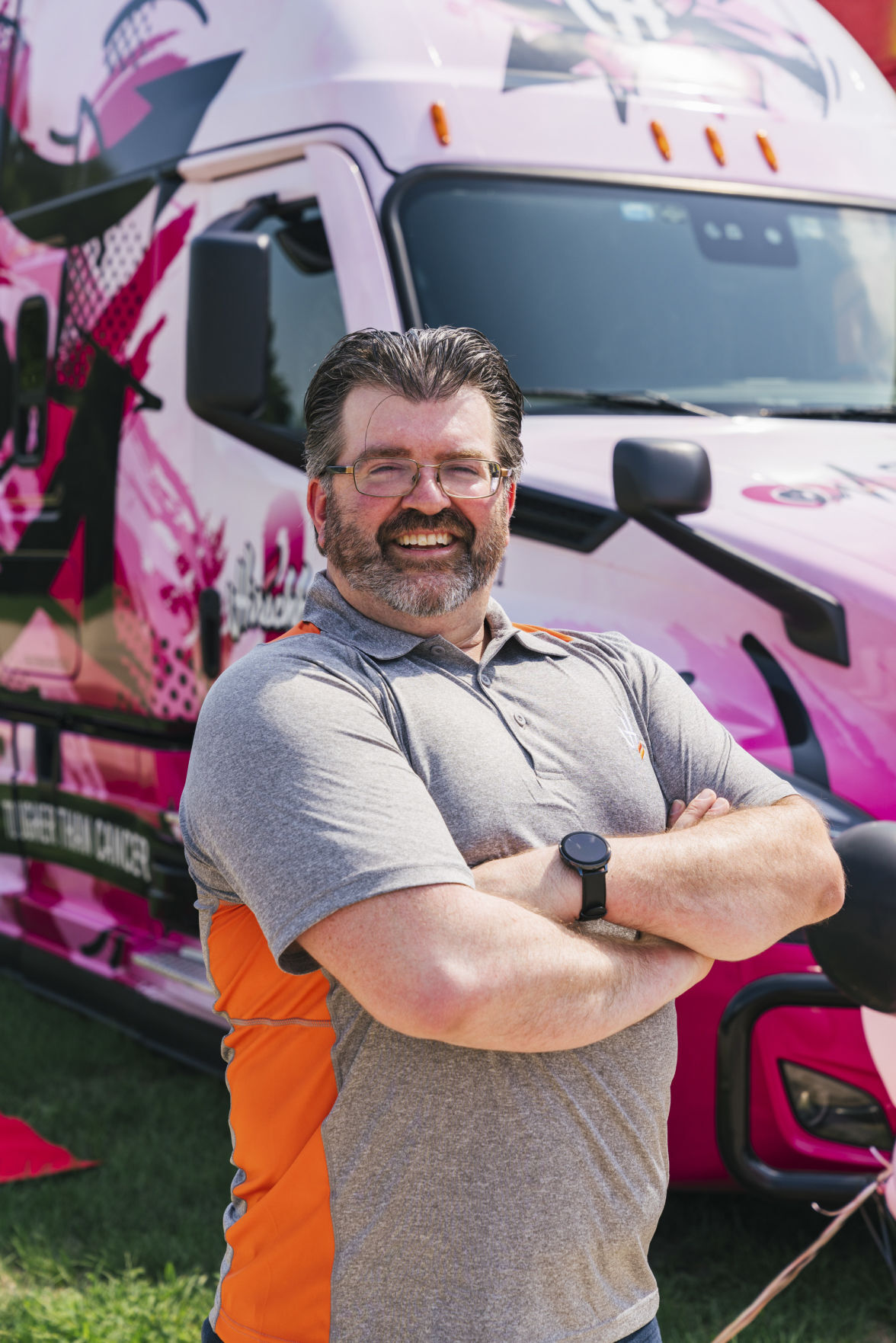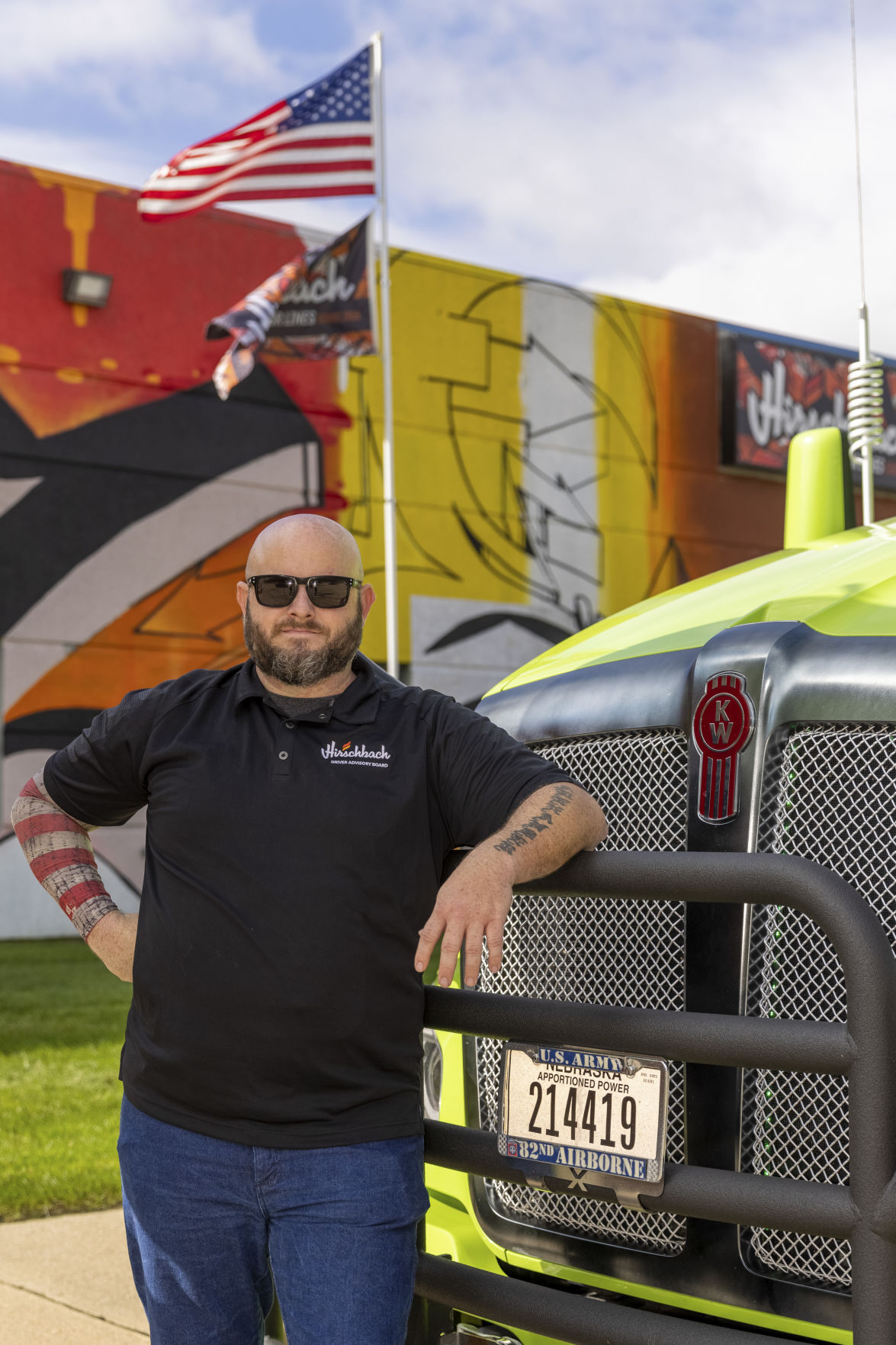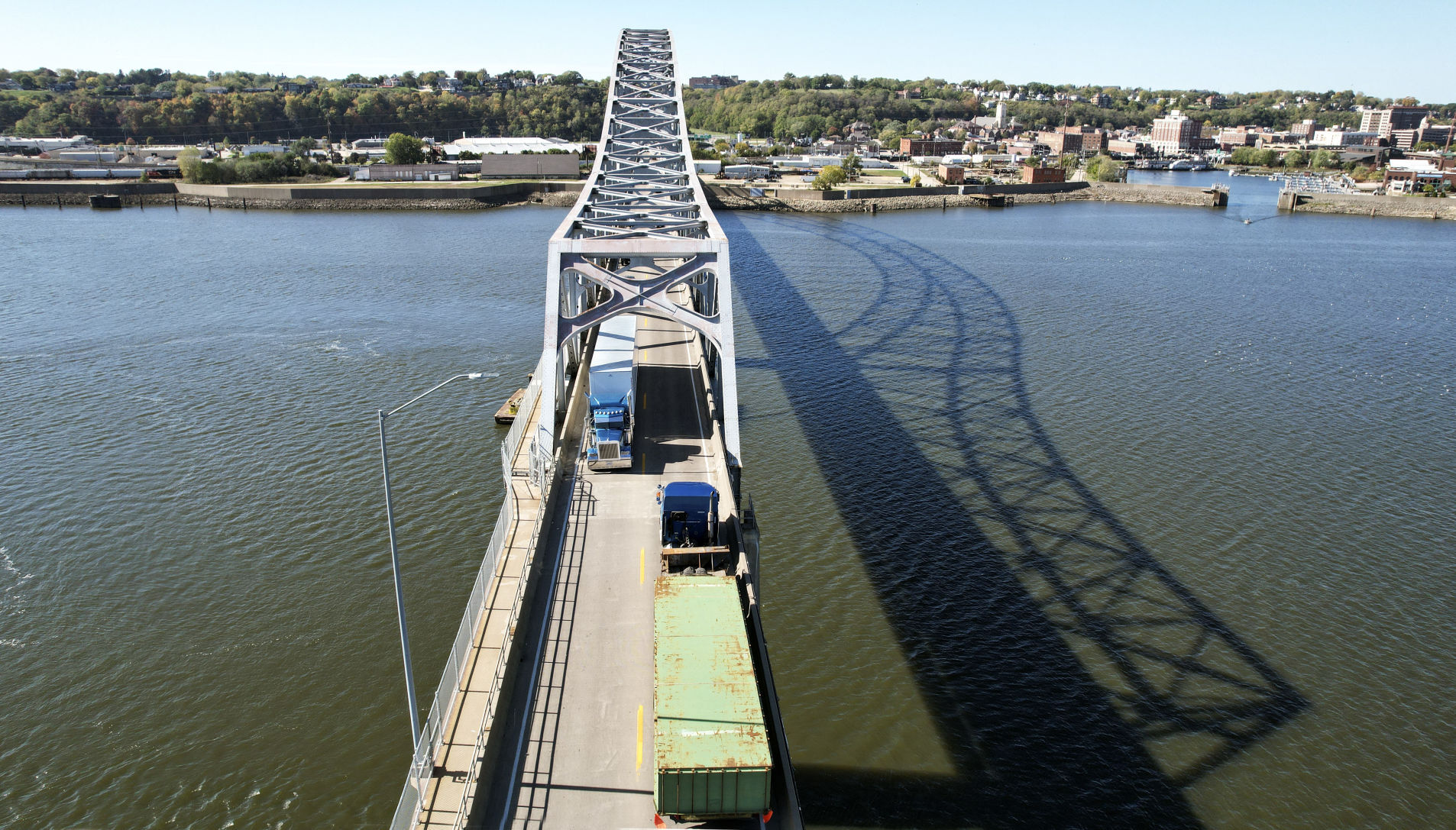It took Shawn Cwynar only two years to see all 48 states in the continental U.S.
Rhode Island was the last state he drove into, but he particularly enjoys passing through the dense woodland of Vermont or riding along the Columbia River in Oregon.
Every day at work, Cwynar’s front office window offers him a new landscape to gaze upon as he pilots an 18-wheel semi-tractor trailer with the radio on and his dog, Roxie, barking in the rear cabin. Cwynar has worked for Hirschbach Trucking in Dubuque since 2016. In his five years with the company, he already has well established routines.
Every work day, he wakes up early in the morning, washes up, walks the dog and lifts some weights before heading out onto the road with cargo in hand and a new destination on the horizon.
Cwynar only makes it back to his home in Dubuque on the weekends, and much of his work week is spent by himself in solitude. But it’s also the exact life that Cwynar enjoys, and he’s not alone.
“You get a lot of independence out here,” Cwynar said. “It’s pretty solitary, but we get used to it.”
Cwynar is one of many truck drivers working for Dubuque-based companies. While many of them have homes in the tri-state area, most of their time is spent outside the state and some don’t return to Dubuque for months.
“I haven’t been home since June, and I don’t plan on going home until at least the new year,” said Clinton Lindig, a driver for Hirschbach. “The money right now is so good out here. it would be foolish of me not to take advantage of it.”
Freight drivers make up a critical component of the transportation and logistics industries in the U.S. The American Trucking Association estimates that the trucking industry hauled 72.5% of all freight in the United States in 2019, delivering the vast majority of products that sit on every store shelf.
The drivers behind that gargantuan movement of freight come from a wide array of backgrounds, with some starting early on in life and others not getting behind the wheel until much later in life.
Lisa Pritchett, a driver for Tucker Freight Lines, worked in the health care industry for decades before, at the age of 43, she decided that where she wanted to be in life was on the road.
“People that I worked with at the time thought I was kidding,” Pritchett said. “I loved it from day one, though. I’ve been in every jam and had things happen that make me go ‘oh my goodness,’ but I love it.”
Today, Pritchett is one of the few truck drivers whose partner also hauls freight. She and her boyfriend, who also drives for Tucker Freight Lines, often cross paths while hauling freight across the country, meeting up to share a dinner together or go see a movie before heading back out to make a delivery.
Not all drivers are so lucky, though, and many freight drivers have to find their ways to stave off loneliness. For Cwynar, it’s the Chihuahua-Jack Russell terrier mix that sits beside him as he drives.
“She’s the demon dog, but she keeps me company,” Cwynar said. “Really, she’s a companion. She’ll snuggle up to me at the exact right time when you are having that bad day.”
Others find company over the phone, talking with family and friends. Lindig talks with his father in Texas every day, who makes sure to track his driving routes online. While Lindig doesn’t get many opportunities to see his family in person, it’s something that he and other drivers have largely accepted. For them, solitude is a requirement of the job, and it takes the right mindset to stick with it.
“It’s a very demanding, very lonely job,” Lindig said. “I’ve always been an independent person. I don’t need anybody to make me happy, so I’m able to do this job and do it effectively.”
However, Lindig said that solitude might play a factor in the severe shortage of freight drivers that the country is experiencing. The American Trucking Association estimates the industry needs an additional 68,000 drivers.
Cwynar said he understands the unpopularity of the job. Along with being stuck by themselves for hours, they often find themselves in high intensity situations, whether it be driving in dense traffic or simply avoiding unskilled drivers. On top of this, Cwynar believes truck driving simply doesn’t allow for a normal lifestyle, despite many drivers’ best efforts to have one.
“It’s not a healthy environment to work in,” Cwynar said. “You really don’t have much opportunity to cook dinner for yourself, so you are usually grabbing a cheeseburger or candy bar when you are on the road. That’s just one of the things I’m trying to deal with, at least.”
But for those who can handle the eccentricities of truck driving, Cwynar said it’s a career that is truly worthwhile. The pay is excellent, each driver is given independence and the camaraderie among other drivers on the road often is jovial.
And even though the job can bring plenty of challenges, for those embark each morning to deliver America’s supplies, there is no job in the country that can beat the view.
“Growing up, I always wanted to see Montana, but I never found the time to go there until I became a truck driver,” Pritchett said. “So, you either love the job or you don’t. But for me, it’s the best job I’ve ever had.”




